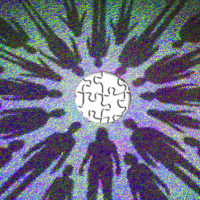 Maybe you have cancer, know people with cancer, aware of cancer survivors, and/or have lost loved ones to the disease. Today, cancer touches everyone directly or indirectly. Statistics indicate that 38.5 percent of people in the U.S. will be diagnosed with cancer during their lifetime. Despite government, public, and private enterprises, there are too many gaps in knowledge, awareness, treatments, and care.
Maybe you have cancer, know people with cancer, aware of cancer survivors, and/or have lost loved ones to the disease. Today, cancer touches everyone directly or indirectly. Statistics indicate that 38.5 percent of people in the U.S. will be diagnosed with cancer during their lifetime. Despite government, public, and private enterprises, there are too many gaps in knowledge, awareness, treatments, and care.
In order to connect the dots with anticancer approaches, patients, caregivers, and providers need to become more educated about integrative cancer care. We must take action to incorporate an integrative cancer care plan for each person. Ultimately, an extensive model—and not some just scratching the surface—should be used by the majority of doctors, other providers, hospitals, and clinics.
Everyone should be treated and recognized as a whole person.
People affected by cancer require attention to body, mind, and spirit, including social and environmental health. All of these components of health and life interact together, influence one another, and interdependently shape each individual. There is no separation, and only networked parts comprising the whole of each human being.
Those who know about my work as an educator and cancer coach have some understanding about benefits from integrative cancer care. Concurrently, more people need to become informed about integrative cancer care for the whole person to improve quality of life, cancer survival, and cancer prevention.
The physical body functions as one whole integrated system. All cells, organs, tissues, and other components of the body create a network that constitutes health. Cancer frequently results from an altered, unbalanced system. Too often, cancer treatments only focus on the diagnosis and a collection of symptoms. Integrative cancer care provides attention to and interventions for the cancer diagnosis, the entire physical body, and the whole person with comprehensive disease-fighting and wellness-promoting strategies.
As the mind and the body are one, cancer care must tend to the mind-body connection. Since emotions, feelings, thoughts, beliefs, actions, behavior, and ego impact and literally shape aspects of biological functioning, studies indicate that mind-body vitality strengthens the inner life supporting optimal health and healing.
Everyone is spiritual by nature. Many people understand that we are connected to something larger than ourselves and engage some form of contact with spirit. Healing is about wholeness. We are whole when our spirit is united with our body. Spiritual vitality improves quality of life in people with cancer.
Social support for those dealing with cancer is paramount. Cancer patients and caregivers experience a range of social challenges, and therefore require social support to enhance health and healing. Many strategies provide support, including personal transformation.
There is a link between cancer and the environment. This issue must be addressed in, on, and around the body; inside and outside one’s home; and, other ways to support environmental health. These factors must be incorporated in order for people to gain benefits.
More extensive information, tools, and resources about answers to cancer can be found throughout JeannineWalston.com. I’m committed to educate and advocate for integrative cancer care for the whole person. If you’d like to provide support for the process, learn more at Make A Donation to Help Us Help Others.
As a 19 year brain tumor survivor, I am dedicated to making a difference, including as a cancer coach, educator, consultant, and speaker.





